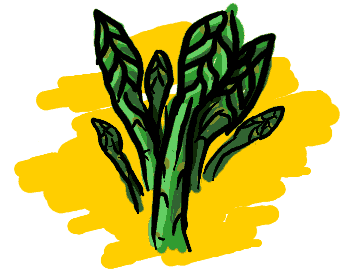

You may have heard the tall tale that "asparagus urine" is linked to higher intelligence. In fact, it's the result of a simple chemical reaction. Asparagus contains a sulfur compound called mercaptan. (It's also found in rotten eggs, onions, garlic, and in the secretions of skunks.) When your digestive tract breaks down this substance, by-products are released that cause the funny scent. The process is so quick that your urine can develop the distinctive smell within 15 to 30 minutes of eating asparagus.
But not everyone has this experience. Your genetic makeup may determine whether your urine has the odor -- or whether you can actually smell it. Only some people appear to have the gene for the enzyme that breaks down mercaptan into its more pungent parts. A study published in the May 1989 British Journal of Clinical Pharmacology found that 46% of 115 people tested produced the odor in one group of British citizens, while 100% of 103 people produced it in a group of French citizens. The ability to smell the by-products may also be genetic. Another study published in the same journal found that 10% of a group of 300 Israeli Jews could not detect the odor. In other words, a person's urine could smell, but he or she might not know it. Judging from your question, you can do both. But that's nothing to worry about.
While eating asparagus may make your urine smell strange, it won't harm you. Actually, asparagus -- a member of the lily family along with garlic, onions, and leeks -- is a powerhouse of nutrients. It's an excellent source of folic acid (a B vitamin that may help protect against birth defects, heart disease, and cancer), a significant source of vitamin C (an antioxidant that may protect tissues against damage), and a good source of vitamin A (an antioxidant). Not to mention that asparagus contains 3 grams of fiber per 3.5-ounce serving and a host of health-enhancing plant chemicals, or phytonutrients, that may protect against disease.
Although the link between "asparagus urine" and higher intelligence is a figment of someone's imagination, eating it regularly could be a sign of some serious health smarts.